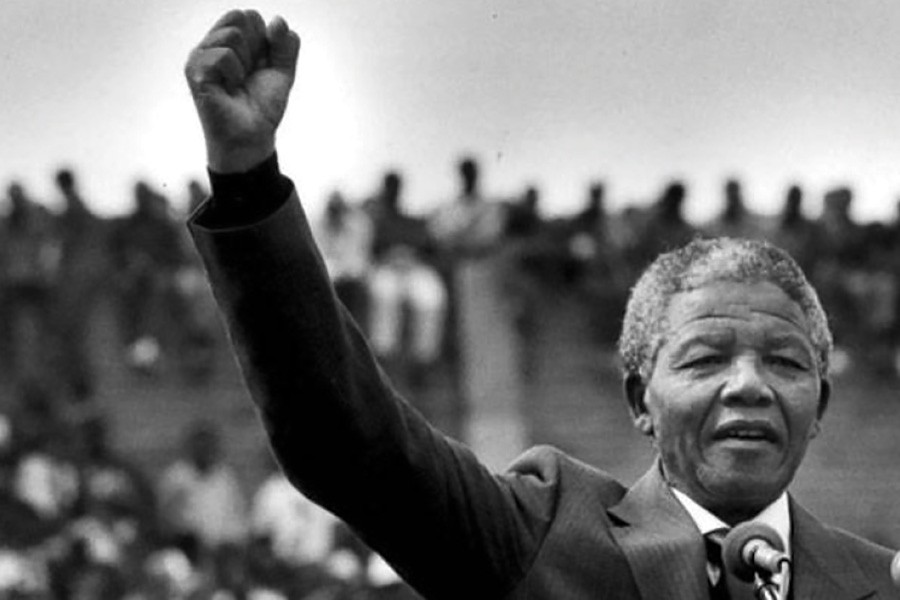The leaders of two key African countries resigned their posts within 24 hours of each other last week. South Africa's Jacob Zuma finally buckled under pressure from his own party to resign the presidency (February 14, 2018). The following day, Ethiopian Prime Minister Hailemariam Desalegn announced his decision to step down in the face of sustained mass protests and political turmoil.
In both cases, two of the oldest liberation parties in Africa, which have remained in office since first coming to power a quarter-century ago, were forced by deep popular discontent to push their leaders aside. The historical trajectories of both parties are largely similar. Nevertheless, the effects of their leaders' exit could not be more different.
Yes, both the African National Congress (ANC) in South Africa and the Ethiopian People's Revolutionary Democratic Front (EPRDF) grew complacent and corrupt, and suffered political decay, over the past quarter-century. But whereas South Africa had put in place a robust set of institutional safeguards in the wake of its transition from apartheid, Ethiopia, after the overthrow of Mengistu Haile Mariam's dictatorship, never managed to build national institutions strong enough to save the country from the ruling party.
Despite obvious differences in the two countries' histories and economic conditions, the way their dominant parties conduct business, and the economic model they claim to have adopted, are strikingly similar. Both the ANC and the EPRDF espouse the Leninist principle of democratic centralism, according to which party members are expected to abide by the policies established by the central party leadership. Both parties deploy cadres widely to ensure that the civil service carries out political decisions. More recently, party elites in both countries have moved to embrace heterodox economic policies.
The ANC has been accused of losing touch with its impoverished voters in one of the most unequal countries on earth. Making matters worse, the massacre in 2012 of 34 miners by police in Marikana revived memories of the apartheid regime's contempt for blacks. Regardless, the ANC, accustomed to winning well above 65 per cent of the vote (mainly owing to its liberation credentials), continued to back the embattled Zuma, who faces accusations ranging from bribery to rape. Governance deteriorated as the economy stagnated and corruption and state capture proceeded apace. The party of Nelson Mandela risked succumbing to internal rot - and taking the country down with it.
Meanwhile, in Ethiopia, the EPRDF harangued the public about how it freed the country decades ago from a brutal military dictatorship, even as millions of young people born and raised under the party's rule face crippling unemployment. The EPRDF continues to imply that any failure by its leadership does not undermine its right to govern the country, while political challenges by opposition groups are portrayed as treasonous. Like the ANC, the longer the EPRDF remained in power, the less it could imagine Ethiopia without it at the helm.
When Zuma announced his resignation, the South African Rand jumped to a three-year high. But after Desalegn announced his decision to step down, Ethiopia's dollar bond fell to a six-month low. These indicators, however, are just the start of the divergent implications the two resignations have had for their respective countries' politics and economics.
The ANC and EPRDF, like many of Africa's liberation movements in the 1960s, stopped responding to evolving political and economic demands, while predatory politicians and their cronies hid behind the party's banner. But while Zuma's successor, Cyril Ramaphosa, promised a "new dawn" for South Africa when he addressed Parliament within days of Zuma's resignation, Ethiopia declared a state of emergency around the same time, amid widespread concern about whether the state would survive the ethnically charged power struggle to succeed Desalegn.
The crucial difference is that South Africa had visionary leaders who were aware of the danger that an out-of-touch dominant party could pose. Mandela reportedly urged newly enfranchised black South Africans, "If the ANC does to you what the apartheid government did to you, then you must do to the ANC what you did to the apartheid government." This sentiment was reflected in the democratic checks and balances enshrined by South Africa's post-apartheid constitution.
Ethiopia, however, has not been so fortunate, particularly because the current regime spent its first decade in office shoring up its precarious power base and fighting a war with neighbouring Eritrea. But the EPRDF made matters worse by undermining the constitution that it helped promulgate, and appearing to have no plan for nation building beyond supposedly rectifying historical inequalities between ethnic communities (though it succeeded in stimulating faster economic growth than the country had ever recorded in modern times).
The most telling indicator of how differently the two countries' democratic institutions responded to the perceived decay of their dominant parties is the recent election results. The ANC kept losing electoral ground to rival parties as its leadership failed to manage South Africa's multifaceted problems. It was to stem further electoral losses that the party decided to push Zuma aside.
The EPRDF, by contrast, turned Ethiopia into a de facto single-party state. The country began its descent into political turmoil a few months after the party claimed to have won, together with its allies, all parliamentary seats in the 2015 elections. Last week, South Africa's democratic institutions appeared to have saved the ANC from itself. Ethiopia is unlikely to be so fortunate. Too few institutional guardrails have survived the neglect or active dismantling that the EPRDF brought about.
Biniam Bedasso is a Global Leaders Fellow at the Blavatnik School of Government, University of Oxford.
Copyright: Project Syndicate, 2018.
www.project-syndicate.org


